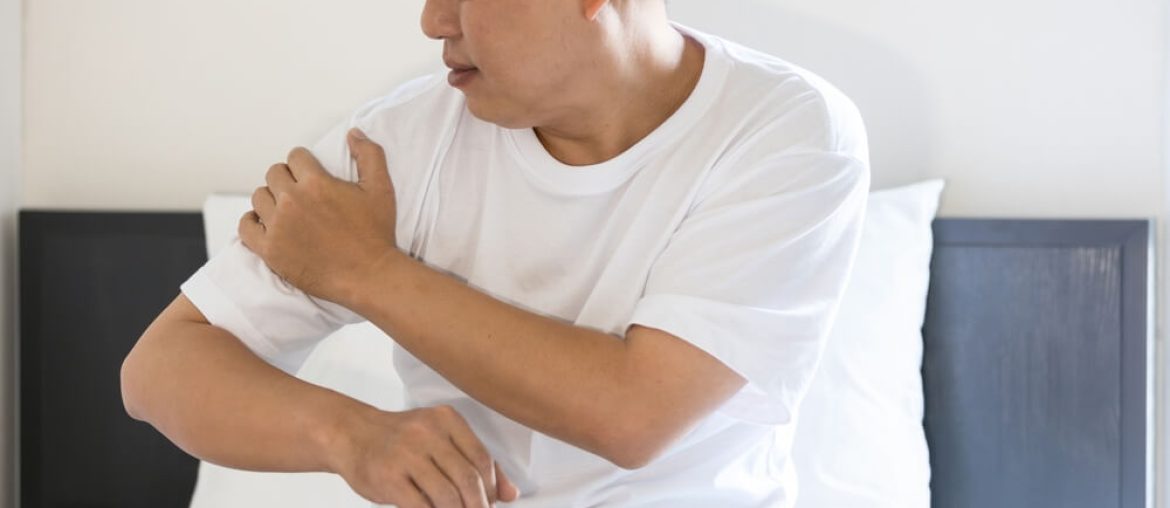Rotator cuff tendonitis, a common cause of shoulder pain, occurs when the tendons in the rotator cuff become irritated or inflamed. This condition can make lifting and rotating the arm difficult, particularly affecting people who perform repetitive overhead activities. Nebraska and Iowa residents experiencing shoulder pain may benefit from learning more about rotator cuff tendonitis, including causes, symptoms, and effective treatment options.
What is Rotator Cuff Tendonitis?
The rotator cuff is a group of muscles and tendons that stabilize the shoulder joint and allow for a range of shoulder movements. Rotator cuff tendonitis develops when these tendons become irritated or inflamed due to overuse or injury. If left untreated, rotator cuff tendonitis can lead to further shoulder complications, including rotator cuff tears.
Symptoms of Rotator Cuff Tendonitis
The primary symptoms include:
- Aching Shoulder Pain: Pain in the shoulder, particularly during arm movement, that may worsen with overhead activities.
- Weakness in the Shoulder: Difficulty lifting or rotating the arm, accompanied by muscle weakness.
- Limited Range of Motion: Stiffness and difficulty moving the shoulder fully.
- Tenderness: Tenderness around the shoulder joint, often on the front or side.
Causes and Risk Factors
Rotator cuff tendonitis can be caused by:
- Repetitive Overhead Activities: Repeatedly lifting or rotating the shoulder, such as in sports like tennis, baseball, or swimming, or through occupations requiring frequent overhead lifting.
- Age-Related Degeneration: As tendons age, they become more susceptible to wear and inflammation, especially in individuals over 40.
- Poor Shoulder Mechanics: Misalignment or poor shoulder posture may lead to tendon strain over time.
- Acute Injury: Falls or direct impact on the shoulder can sometimes trigger tendonitis.
Diagnosing Rotator Cuff Tendonitis
To diagnose rotator cuff tendonitis, an orthopedic specialist may perform a physical examination and order imaging tests:
- X-rays: These help rule out bone issues that may contribute to shoulder pain.
- Ultrasound or MRI: These scans can reveal inflammation, thickening, or other signs of tendon damage.
Treatment Options in Nebraska and Iowa
Treatment focuses on reducing pain, controlling inflammation, and restoring shoulder mobility. Options include:
- Non-Surgical Treatments
- Physical Therapy: Physical therapy exercises are essential to improve shoulder strength, flexibility, and stability.
- Anti-inflammatory Medications: NSAIDs like ibuprofen can help relieve pain and reduce inflammation.
- Steroid Injections: Corticosteroid injections may provide temporary relief from severe pain and inflammation.
- Surgical Options
- Arthroscopic Tendon Repair: In cases where tendonitis progresses to a partial tear, arthroscopic surgery can repair the tendon damage.
- Subacromial Decompression: For patients with bone spurs or structural issues, this minimally invasive procedure can create more space for tendons, reducing impingement and inflammation.
Recovery and Rehabilitation
Recovery time varies depending on the severity of the tendonitis and treatment approach. Non-surgical options generally require several weeks, while surgery may extend recovery time to a few months. Physical therapy plays a key role in both non-surgical and post-surgical recovery, helping to restore shoulder function and prevent future issues.
When to Seek Treatment in Nebraska and Iowa
If shoulder pain persists or if activities become difficult due to limited shoulder movement, consulting with an orthopedic specialist in Nebraska or Iowa can provide targeted treatment options and help restore comfort and mobility.

